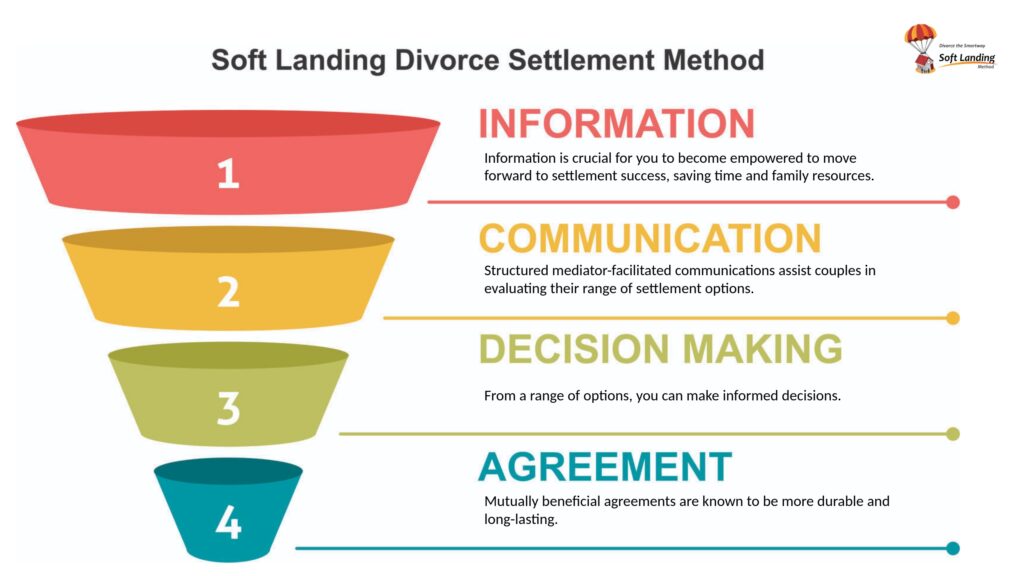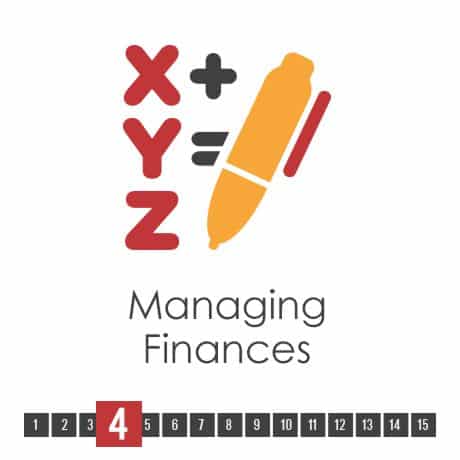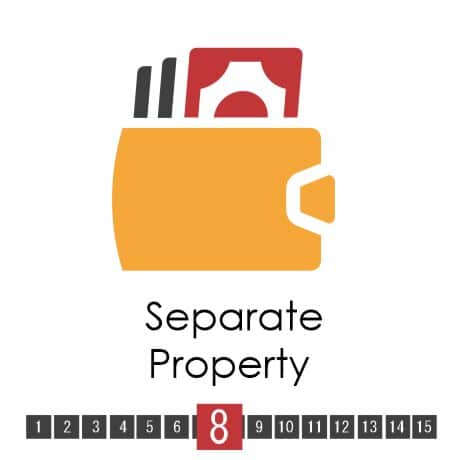What to expect in a Divorce Settlement – Offer to Settle Evaluation

10 Ways Getting An Expert Opinion About Your Divorce Settlement Offer Will Help
3 Reasons Why You Need A Divorce Offer to Settle Evaluation
I’m A Certified Divorce Financial Analyst
The Ways I Can Help You Get A Better Divorce Settlement
Of course, every case is different, and only by closely reviewing your unique circumstances can I offer you specific advice. But here are examples of how I’ve helped some previous clients:
What Happens When You Decide To Get A Divorce Offer to Settle Evaluation
Divorce settlements divide marital assets and debts based on legal principles of equitable distribution
In Canada, divorce settlements aim to achieve a fair and equitable division of matrimonial property between spouses. The court considers multiple factors when determining how to distribute assets and debts.
Key factors that influence property division include:
- Length of marriage – longer marriages typically result in more equal distribution
- Financial contributions – including income, savings, and retirement accounts
- Non-financial contributions – such as childcare and household management
- Future needs – including earning capacity and health considerations
- Child custody arrangements – affecting housing and support requirements
Most provinces follow an equal division of matrimonial property acquired during marriage, though exceptions may apply. It’s advisable to seek guidance from a family law professional to understand your specific rights and obligations under provincial law.
A fair divorce settlement should meet your financial needs and legal entitlements while protecting your long-term interests.
Evaluating a divorce settlement offer requires careful consideration of multiple financial and legal factors. A comprehensive settlement assessment should examine both immediate and future implications for your financial well-being.
Key elements to evaluate include:
- Asset division – ensuring fair distribution of property, investments, and retirement accounts
- Income considerations – including spousal support, child support, and earning potential
- Tax implications – understanding how the settlement affects your tax obligations
- Long-term financial security – evaluating retirement plans and insurance coverage
- Debt allocation – determining responsibility for joint debts and liabilities
Before accepting any offer, consult with a qualified divorce professional such as a certified divorce financial analyst or family law lawyer who can provide an objective evaluation and ensure the settlement adequately protects your interests.
Out-of-court divorce settlements offer faster resolution, reduced costs, and greater control over outcomes
Choosing to settle your divorce outside of court provides several significant advantages that can make the process smoother and less stressful. A negotiated settlement allows both parties to maintain better control while preserving relationships, especially when children are involved.
Key benefits include:
- Cost savings – Avoid expensive court fees and lengthy legal proceedings
- Faster resolution – Settle matters in weeks or months instead of years
- Privacy protection – Keep personal matters confidential, unlike public court proceedings
- Reduced stress – Work collaboratively rather than adversarially
- Greater flexibility – Create customized solutions that work for both parties
- Better co-parenting outcomes – Maintain more positive relationships for children’s benefit
Working with a qualified divorce mediator or collaborative divorce professional can help facilitate productive negotiations and ensure both parties reach a fair agreement that meets their needs.
A divorce settlement requires thorough financial documentation, professional guidance, and strategic negotiation to secure fair compensation
Obtaining money from a divorce settlement involves several critical steps to ensure you receive your rightful share of marital assets. A comprehensive financial review is essential before beginning negotiations.
- Gather complete documentation of all marital assets, including bank accounts, investments, property, and retirement funds
- Work with a certified divorce financial analyst to understand long-term implications of asset division
- Consider engaging a divorce mediator to facilitate fair negotiations
- Ensure all hidden assets are properly disclosed and valued
- Maintain detailed records of all financial transactions during separation
- Consult with a family law lawyer to understand your legal entitlements
Once the settlement is reached, work with your legal team to establish clear payment terms and enforcement mechanisms. Consider both immediate cash settlements and structured payments to optimize your financial security.
A divorce settlement is a legal agreement that divides assets, debts, and establishes support obligations between separating spouses.
A divorce settlement agreement serves as the formal blueprint for how separating couples will handle their shared financial and personal matters. This legally binding document typically covers:
- Property division – including homes, vehicles, investments, and personal belongings
- Financial obligations – such as mortgage payments, credit card debt, and joint loans
- Support arrangements – including spousal support (alimony) and child support payments
- Parenting responsibilities – outlining custody arrangements and visitation schedules
- Insurance and benefits – addressing health coverage, life insurance, and retirement accounts
Working with a qualified divorce mediator or family law professional is essential to ensure the settlement is fair, comprehensive, and compliant with provincial laws. Once approved by the court, this agreement becomes legally enforceable.
A divorce settlement requires negotiating key terms and reaching a formal agreement between both parties
Settling a divorce involves working through several critical legal and financial decisions to reach a comprehensive agreement. The process typically requires careful consideration of multiple factors.
- Division of shared assets and debts
- Spousal and child support arrangements
- Child custody and parenting schedules
- Division of property and investments
- Allocation of retirement accounts and pensions
Working with a divorce mediator or family law professional can help facilitate productive negotiations and ensure all legal requirements are met. This collaborative approach often results in faster, less expensive, and more amicable settlements compared to lengthy court proceedings.
Lawyers negotiate settlements through strategic advocacy, evidence presentation, and skilled communication
Legal settlement negotiations involve a structured process where lawyers work to achieve the best possible outcome for their clients. Professional negotiation tactics typically include:
- Gathering and analyzing evidence to build a strong negotiating position
- Researching similar cases and legal precedents to support claims
- Presenting compelling arguments backed by documentation
- Utilizing strategic communication and bargaining techniques
- Drafting and reviewing settlement agreements
While lawyer-led negotiations are common, parties may first consider alternative dispute resolution methods like mediation or working with financial analysts to reach more cost-effective and amicable solutions. These approaches often preserve relationships and reduce legal expenses while achieving satisfactory outcomes.
Settlement offer acceptance periods typically range from 7-30 days, though timeframes can vary by jurisdiction and circumstances
The decision to accept a divorce settlement offer requires careful consideration and shouldn’t be rushed. Settlement offers often come with specific deadlines, but these timeframes can be negotiable. Before making this important decision, it’s essential to:
- Consult with a qualified divorce lawyer to understand your legal rights
- Review the offer with a certified divorce financial analyst to assess long-term implications
- Consider having a divorce mediator evaluate the fairness of terms
- Request an extension if you need more time to analyze the proposal
- Ensure all assets and liabilities are properly disclosed and valued
If no specific deadline is provided, it’s generally advisable to respond within a reasonable timeframe to maintain good faith negotiations and keep the divorce process moving forward.
A fair divorce settlement requires full financial disclosure, professional guidance, and balanced negotiations between both parties.
To secure a fair divorce settlement, it’s essential to take a systematic and well-documented approach. Working with qualified professionals can help ensure an equitable distribution of assets and appropriate support arrangements.
- Gather complete documentation of all assets, debts, and income sources
- Consider engaging a certified divorce financial analyst to evaluate long-term implications
- Work with a qualified divorce mediator to facilitate productive negotiations
- Ensure full disclosure of all financial information from both parties
- Account for both immediate and future financial needs
- Consider tax implications and practical aspects of asset division
Remember that a fair settlement doesn’t always mean an equal split – it should reflect each spouse’s contributions, earning capacity, and future needs while ensuring both parties can maintain a reasonable standard of living post-divorce.
Settling divorce out of court typically offers faster, less expensive, and more amicable resolutions.
Choosing to settle a divorce outside the courtroom through alternative dispute resolution methods provides numerous advantages for separating couples. This approach typically leads to more satisfactory outcomes while preserving relationships, especially important when children are involved.
Key benefits of out-of-court settlements include:
- Cost savings – Significantly lower legal fees and court costs
- Faster resolution – Avoid lengthy court proceedings and scheduling delays
- Greater privacy – Keep personal matters confidential and out of public records
- Better control – Maintain decision-making power over important life choices
- Reduced stress – Less confrontational environment promotes cooperation
Working with qualified professionals like divorce mediators or collaborative law practitioners can help couples navigate the settlement process effectively while ensuring both parties’ interests are protected.
Most evaluations are completed within 2 weeks, depending on case complexity
The duration of your evaluation depends on several key factors that influence the assessment process. Case complexity and current scheduling capacity are the primary determinants of completion time. A typical evaluation includes:
- Initial consultation and documentation review
- Assessment sessions and testing procedures
- Data analysis and report preparation
- Final review and recommendations
While straightforward cases may be completed in under 2 weeks, more complex situations requiring additional assessment or consultation may take longer. We strive to provide thorough evaluations while maintaining efficient timelines for all clients.
Proposal evaluations start at $1,500 with additional hours billed at $250/hour
Our comprehensive proposal evaluation service follows a structured pricing model based on the time required for thorough analysis. The base package at $1,500 includes:
- Two consultation meetings (60-90 minutes each)
- Three hours of financial analysis
- Detailed report preparation
Payment is structured in two parts: a $250 initial appointment fee when booking, followed by $1,250 at your first meeting. Should your evaluation require additional analysis beyond the standard package, extra time is billed at $250 per hour, payable at the final consultation.
We serve clients across Canada, providing financial guidance during divorce nationwide
Our financial advisory services are available to clients throughout Canada, helping protect individuals from costly financial mistakes during divorce. While provincial divorce laws may differ, our expertise focuses on the financial aspects of divorce settlements rather than legal matters. We help clients navigate their financial decisions regardless of their location, ensuring they receive professional guidance to secure their financial future.
- Available to residents in all provinces and territories
- Financial analysis and guidance for divorce settlements
- Virtual consultations and remote service delivery
No, I am a financial professional who specializes in divorce-related financial analysis
As a financial divorce specialist, I focus exclusively on evaluating your situation from a financial perspective. While I provide comprehensive financial advice and recommendations for divorce settlements, I do not offer legal counsel. If you require legal guidance, I maintain a network of qualified family law professionals and would be happy to provide appropriate referrals to meet your legal needs.
- Financial analysis and recommendations only
- No legal advice or services provided
- Professional referrals available for legal matters
Give yourself the best chance of getting a divorce settlement that has your best interests at heart. Reach out to me, Ken S. Maynard at Divorce the Smartway for a divorce settlement offer evaluation today.
Ken Maynard CDFA, Acc.FM
I assist intelligent and successful couples in navigating the Divorce Industrial Complex by crafting rapid, custom separation agreements that pave the way for a smooth transition towards a secure future. This efficient process is achieved in about four meetings, effectively sidestepping the excessive conflicts, confusion, and costs commonly linked to legal proceedings. Clients have the flexibility to collaborate with me either via video conference or in-person through a DTSW associate at any of our six Greater Toronto mediation centers, located in Aurora, Barrie, North York, Vaughan, Mississauga, and Scarborough.





















